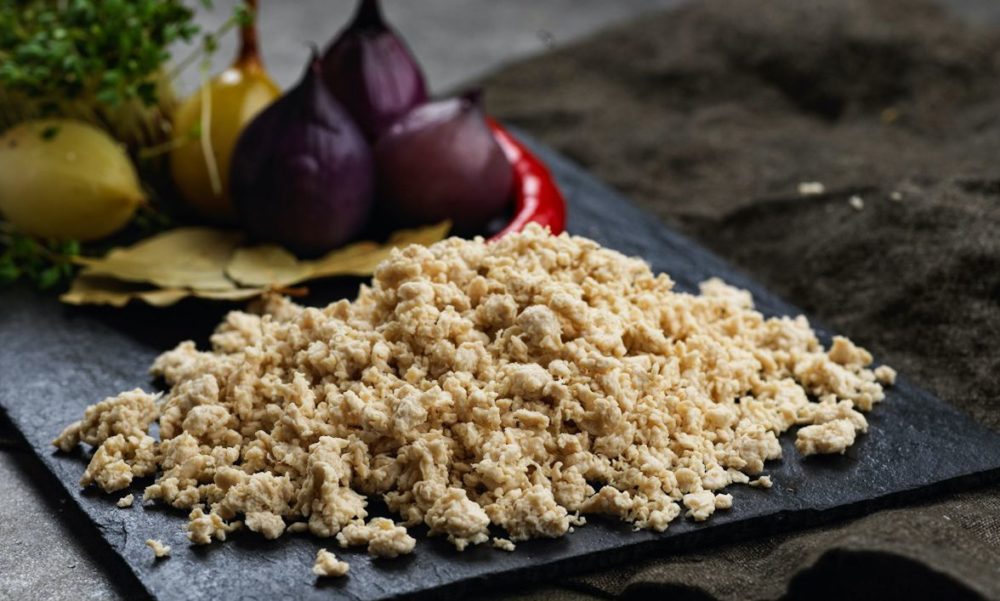Swedish biotech startup Mycorena, which makes a mycelium protein ingredient for meat alternatives, has raised a €24 million ($26.8 million) in what it says is the largest-ever Series A funding round for an alternative protein company from the Nordic countries. In fact, it’s the largest Series A round on record for an alternative protein company across the whole of Europe, according to data from AgFunder [disclosure: AgFunder is AFN‘s parent company.]
The Gothenburg-based company has not disclosed the names of investors at this time, stating only that the round includes several new backers as well as participation from “existing shareholders” and is a combination of equity and debt capital.
Mycorena will use the funds to move its key product Promyc from prototype stage to commercialization in both a B2B and B2C capacity.
Mycorena’s proprietary ingredient Promyc is a filamentous fungi that produces mycelium via fermentation in custom-designed bioreactors. The goal right now is to license Promyc to other food produces hoping to develop vegan meat alternatives, from crispy burgers and tuna analogues.
Mycorena has a few such B2B partnerships in the works right now, including one with the ICA group to launch mycoprotein nuggets to Swedish customers. Last year, Mycorena also launched a fungi-based fat product to be used in other vegan foods for flavor enhancement.
There is also an upcycling component to Mycorena’s process. Via its LIFE RE:FOOD project with the European Union (EU), the company uses side-streams from bakeries, mills, and other food production as feedstock for its own fermentation process. Mycorena indicates on its website that using such bio-waste for higher-value ingredients is a more economical and environmentally friendly use case for food waste than allocating it as animal feed.
The LIFE RE:FOOD project is expected to run until 2024, with the hopes that its results can be duplicated in the wider EU food industry.
Outside of Quorn, there are a few other companies in Europe currently producing alt-meat with mycoproteins, including Germany-based Mushlabs, Scotland’s Enough, which raised a $51 million Series B last year, and two Spanish startups, Innomy and Libre Foods.
The company began construction on the first-ever commercial-scale mycoprotein manufacturing plant in the Nordics. The facility is slated to be operational by 2023 and will be in close physical proximity to multiple leading food and beverage manufacturers.





